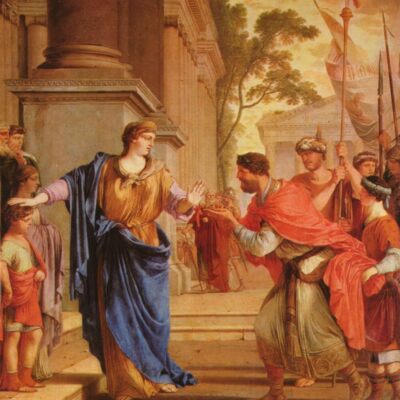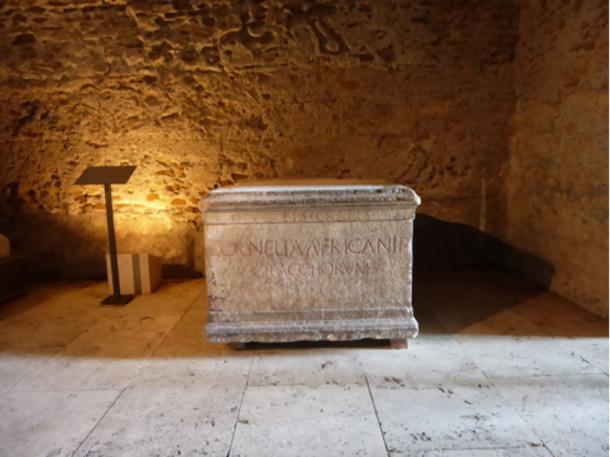Cornelia Africana the Younger (Cornelia Africana) was born around 190 BCE. She went down in history as an exemplary Roman matron, a chaste woman living in accordance with Roman values and a mother supporting her sons: Tiberius and Gaius Gracchi. She was remarkably intelligent, wise and determined.
Her father was the big winner of Publius Cornelius Scipio Africanus – after whom she inherited the nickname – and her mother was Aemilia Paulla. She had an older sister with the same name. Cornelia married Tiberius Gracchus the Elder – the grandson of Tiberius Sempronius Gracchus. The relationship was happy and they had 12 children, which was remarkable even by Roman standards. However, only three survived to adulthood: Sempronia, who married Scipio Africanus the Younger; and the brothers Tiberius and Gaius Gracchi, who became famous in the future for their populist reform.
After her husband died (circa 154 BCE), Cornelia decided to remain a widow and concentrate on educating her children. Her persistence in the decision aroused great respect among the Romans. Cornelia even rejected the proposals of king Ptolemy VIII Euergetes II Tryphon himself, ruler of Egypt, who promised her a crown and treasures. Moreover, Cornelia devoted herself to studying Latin, Greek, and literature, and she wrote letters that prove how much support she was for her sons. Her letters were appreciated, among others, by Cicero for the beauty of the language. Only two fragments of letters in the manuscripts of Cornelius Nepos have survived our times.
Cornelia, in order to educate her sons about Rome, attracted the great sages of that time, including Blossius or Diophanes, who were to instil the Romans primarily with oratory skills. Cornelia always stood on the side of her sons, even when they showed their opposition to the actions of the conservative part of politicians (they themselves came from a patrician family).
Valerius Maximus, a Roman writer from the 1st century CE, author of a collection of anecdotes in 9 books about famous deeds and sayings Factorum et dictorum memorabilium libri novem mentions one interesting anecdote from the life of Cornelia. One day she hosted a patrician who flaunted her rich jewellery at every step. Cornelia let her tell about her precious treasures until her sons entered the house. Then Cornelia was to say, “Here are my treasures”.
To this day, Cornelia is remembered as the proud mother of her two ambitious sons: Tiberius and Gaius Gracchi. Most of the information we have about her relationship with her sons is due to Plutarch, who most often mentions her active role during Gaius’s People’s Tribune office. Among other things, Plutarch mentions how Gaius retracted the law “hitting” Marcus Octavius - the tribune of Tiberius Gracchus, who was formerly a rival of Tiberius Gracchus – at the request of Cornelia.
After the tragic death of her sons (Gaius was murdered in 121 BCE), Cornelia withdrew from the life of Rome and the city itself. She went to a villa in Misenum (now Miseno in Italy), where she continued to receive petitioners and guests.
She eventually died an elderly woman in 100 BCE. After her death, the Senate and Roman society appreciated her person by financing a marble statue in her honour. She was recognized by the nation as a model of a Roman matron and an exemplary mother. In the future, many Roman women compared themselves to her person.









